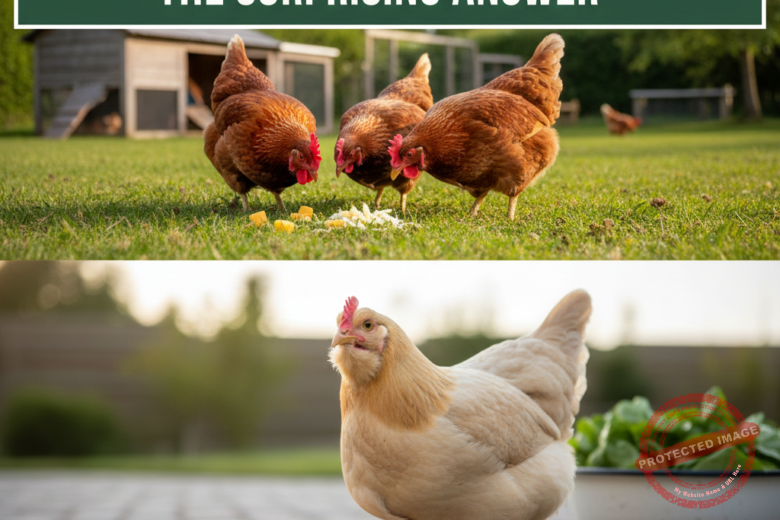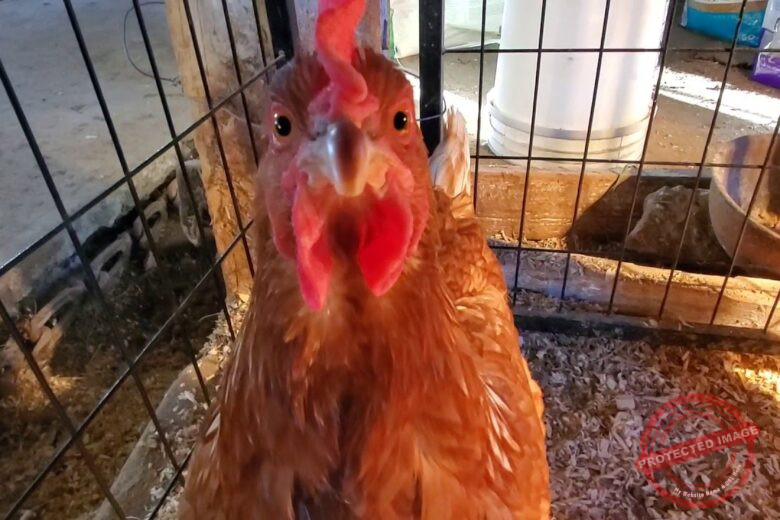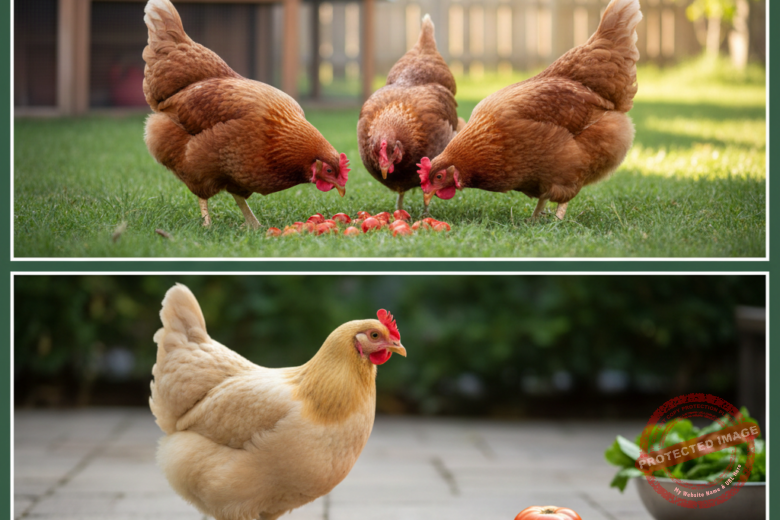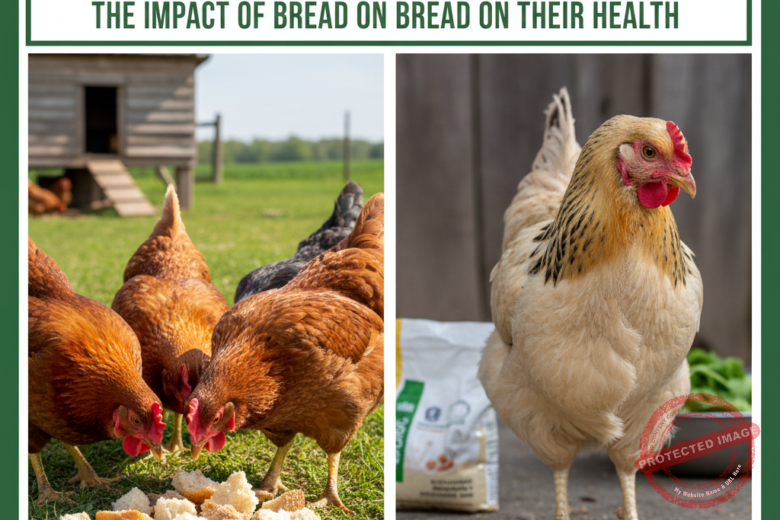If you’ve ever tossed a beet into the compost pile only to watch your chickens rush in and peck at it like it’s a hidden treasure, you’ve probably wondered—can chickens eat beets safely? It’s a fair question. Beets are colorful, earthy, and full of nutrients for us humans, but that doesn’t always mean they’re right for our feathered friends. When I first started letting my hens explore garden scraps, I was cautious about everything I threw their way. Chickens will eat just about anything that catches their eye, but not everything they eat is good for them.
I remember one summer afternoon when I dug up a row of beets from the garden. The hens were circling me like tiny, feathery vultures, waiting for something to fall. I tossed one their way, and within seconds it became a beet-pecking frenzy. The red juice stained their beaks, making them look like little vampires. It was hilarious, but it also made me curious—are beets actually beneficial for chickens, or just a fun treat? That question led me down a rabbit hole of trial, error, and a few colorful coops.
So, if you’ve been wondering whether your flock can join you in snacking on this bright root vegetable, you’re in the right place. Let’s look into everything you need to know about feeding beets to chickens—what’s good, what’s not, and how to do it safely. Trust me, once you understand how to serve them right, your hens will be clucking their thanks.
Can Chickens Eat Beets?
Yes, they absolutely can! Chickens can eat beets, including the roots, leaves, and stems. These parts are loaded with vitamins, fiber, and minerals that support overall health. Beets are particularly rich in folate, manganese, and potassium—nutrients that help with egg production and digestion. Still, like most treats, they should be served in moderation. Too much of anything (even the healthy stuff) can throw off a chicken’s diet.
What About Beet Leaves and Greens?
You might be wondering, can chickens have beet leaves? Yes, they can—and they love them! Beet greens are safe and nutritious, offering an extra dose of iron and calcium. The leaves are softer than the roots, making them easy for chickens to peck and digest. You can chop them up fresh or hang a bunch in the coop for some midday entertainment. Just make sure the leaves are pesticide-free and clean before serving.
Nutritional Benefits of Beets for Chickens
Beets pack a punch of nutrition. Here’s what makes them such a valuable treat for your flock:
-
Boosts immune health: The antioxidants in beets help strengthen chickens’ immune systems, keeping them more resilient during stressful seasons or molting.
-
Supports digestion: The fiber in beets keeps their digestive systems running smoothly, especially when mixed with their regular feed.
-
Improves egg quality: The natural pigments (betalains) and nutrients can contribute to richer yolk color and overall egg quality.
-
Promotes energy and stamina: Beets contain natural sugars that provide a little energy boost, great for active free-ranging hens.
Still, moderation is key. You wouldn’t eat an entire plate of beets every day, and your chickens shouldn’t either.
The Risks: What to Watch Out For
As healthy as beets are, there are a few things to be cautious about. The biggest issue is balance. Chickens need a diet that’s mostly grains and protein from their feed. Too many beets can dilute that balance. The high sugar content can also cause digestive upset if fed excessively. And while it’s rare, some birds might turn up their beaks (literally) if the taste doesn’t appeal to them.
Another funny but harmless side effect—you’ll notice their droppings turn reddish after eating beets. Don’t panic! That’s not blood, just the natural pigment passing through.
How to Feed Beets to Chickens
There are several easy ways to introduce beets into your flock’s diet. You can feed them raw, cooked, or grated. Let’s break it down:
1. Raw Beets
Raw beets are firm and crunchy, which means they last longer when tossed into the run. Chop them into manageable chunks or slices so your chickens can peck at them comfortably. If you’ve got a pecking hierarchy in your coop, cutting them up ensures everyone gets a fair share.
2. Cooked Beets
Cooked beets are softer and easier to digest, especially for younger or older chickens. Boil or steam them without adding salt, butter, or oil. Once cooled, cut them into small pieces before serving. Avoid feeding them leftover beet dishes from your kitchen that might contain seasonings.
3. Beet Greens
These can be offered fresh or wilted slightly. My hens love it when I tie a bunch of greens from a fence post or perch—it turns snack time into playtime. It’s a great boredom buster during rainy days or winter months when foraging options are limited.
4. Beet Pulp
If you have access to beet pulp (often used as livestock feed), you can mix a small amount into your chickens’ regular feed. It’s rich in fiber and adds variety to their diet.
A Quick “How-To” Guide: Introducing Beets to Your Flock
-
Start small—offer a few beet slices and observe how they react.
-
Mix beets with other veggies like carrots or cabbage for variety.
-
Avoid feeding moldy or spoiled beets.
-
Always provide fresh water after feeding, as beets can be slightly dehydrating.
-
Keep treats to less than 10% of their total diet.
Your chickens may not all fall in love with beets immediately, but curiosity usually wins. Give them time to explore the new flavor.
Real-Life Farm Moment
Last fall, after harvesting my garden beets, I had a pile of oddly shaped leftovers—too small for selling but too good to waste. I tossed them into the chicken run, expecting a casual peck or two. Instead, it turned into a full-on beet party. The hens were running around, tugging at beet leaves like kids at a fair. By the time I checked back, only red-stained soil remained. It reminded me of something important—chickens may be simple creatures, but they sure know how to enjoy life’s little treats.
FAQs About Chickens and Beets
1. Can chickens eat beet stems?
Yes! Beet stems are safe and edible. They’re fibrous, so chop them up before serving to make them easier to eat.
2. Can chickens have beet leaves every day?
While beet leaves are healthy, it’s best not to feed them daily. Rotate greens like kale, lettuce, and spinach for balanced nutrition.
3. Can chickens eat canned beets?
Avoid canned beets since they often contain salt or preservatives that aren’t healthy for chickens.
4. Can chickens eat beetroot peels?
Yes, as long as the peels are clean and free of pesticides. Some farmers even mix shredded beet peels into their compost pile—chickens love pecking through it.
5. Will beets affect the taste or color of eggs?
No, beets won’t change the taste or color of your eggs. They might just make your chickens happier and healthier, though.
A Note on Planting Beets for Your Chickens
If you’ve got a garden space, consider planting extra beets next season. They’re easy to grow, tolerate cool weather, and don’t require much maintenance. Space them about three inches apart, keep the soil loose, and water consistently. The best part? You’ll get food for both you and your flock. When harvesting, keep the small or misshapen roots aside for your chickens—they’ll thank you for it.
Final Thoughts
Feeding beets to your chickens isn’t just about offering a snack—it’s about giving them variety and natural nutrients straight from the garden. Whether it’s the crunchy roots or leafy tops, beets bring color, flavor, and fun to your coop. Just remember, moderation is the magic word. A healthy, happy flock is one that eats a balanced mix of feed, greens, and the occasional treat.
The next time you’re pulling beets from your garden or eyeing those extras at the farmer’s market, maybe grab a few for your hens. After all, sharing your harvest is part of the joy of farming. What better way to celebrate the season than by letting your chickens join in the feast?



